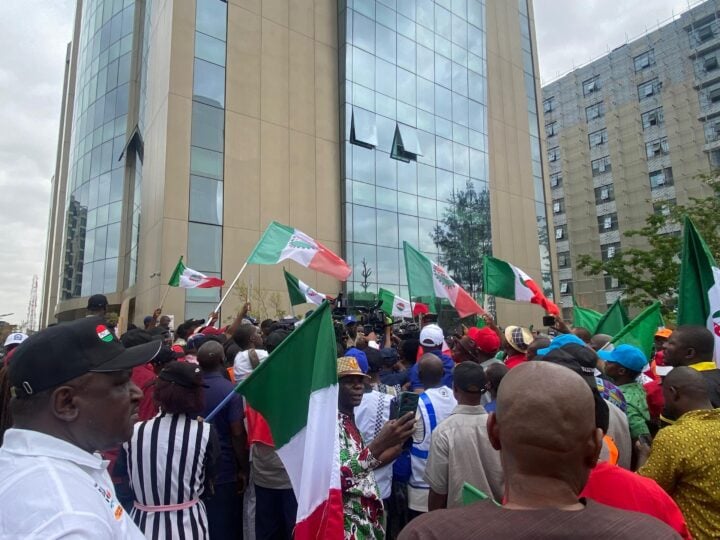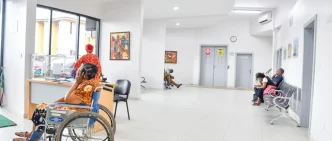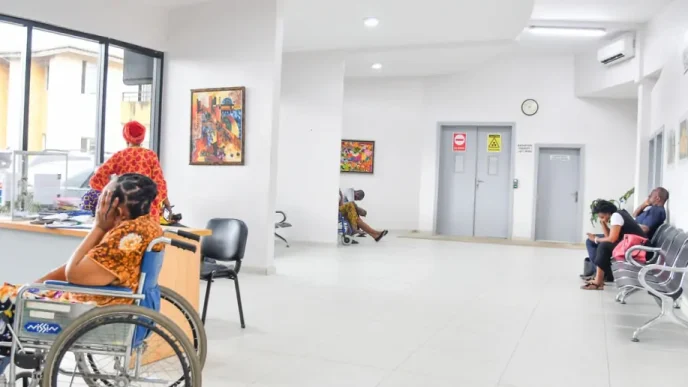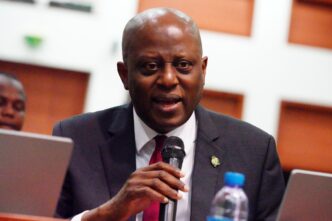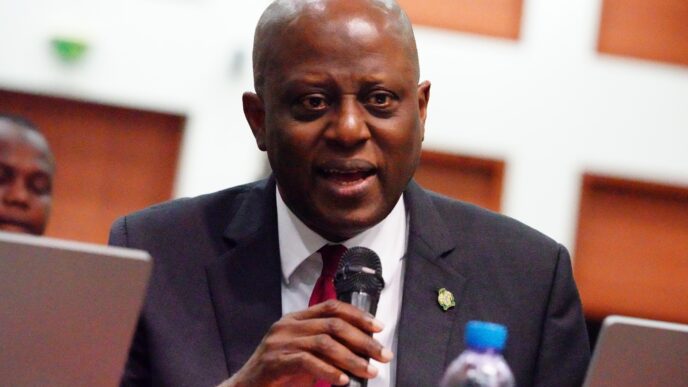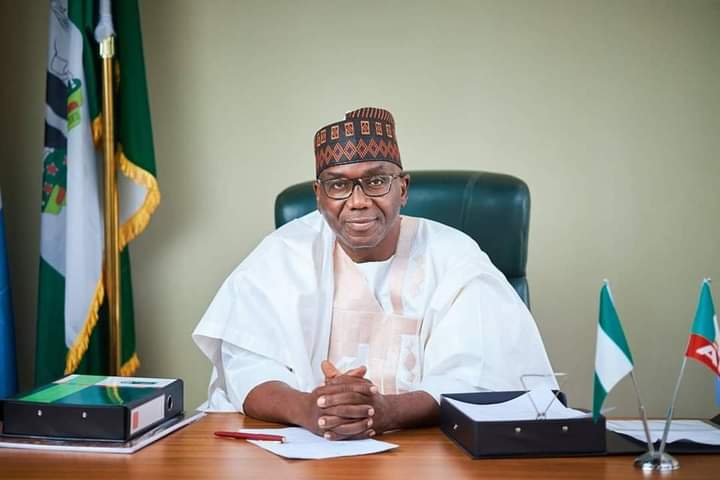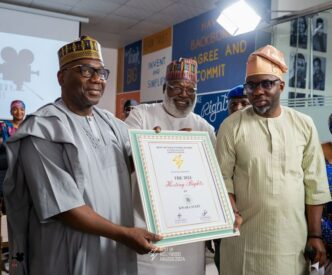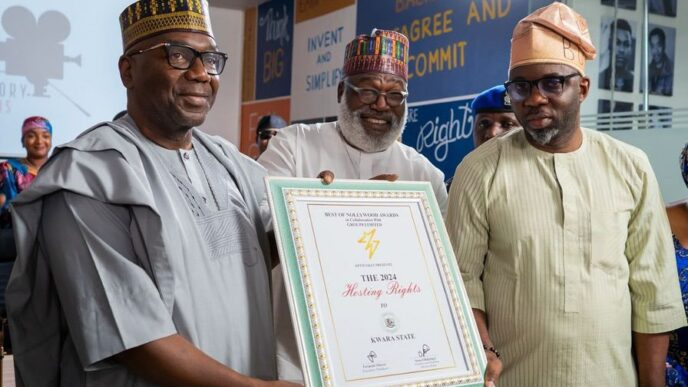BY AYODELE ADIO
The recent approval of a 50% increase in telecommunications tariffs by the Nigeria Communications Commission (NCC) has sparked intense debate across the country, drawing strong opposition from various quarters, most notably the Nigeria Labour Congress (NLC). The NLC, as a body representing the interests of Nigerian workers, has been vocal in its disapproval, per news reports, calling the hike an unnecessary burden on an already strained populace. While the NLC’s advocacy for the welfare of Nigerian workers may be rooted in genuine concern, their outright rejection of the tariff increase and their threat of a nationwide strike miss the mark in addressing the root causes of the country’s economic challenges.
In their resistance, the NLC fails to account for the broader, and more painful, economic realities that the country is facing. The truth is that the tariff adjustment is challenging for many, but it is also a crucial and inevitable response to Nigeria’s current economic condition. This hike is not a mere arbitrary increase in prices but a necessary adjustment driven by soaring inflation, a depreciating currency, and the need to secure long-term investment in the telecommunications sector, an industry that is not only a significant contributor to the national GDP but is also foundational to Nigeria’s digital economy and overall development.
Without such an adjustment, the long-term consequences for the sector and the wider economy would be far more damaging than the temporary pain of a higher tariff.
The economic necessity of the tariff hike
Advertisement
The 50% tariff increase represents a long-overdue correction after more than a decade of price stagnation. During this period, the cost of providing telecommunications services has escalated exponentially. The naira has plummeted against the dollar in just the past year, going as high as N1,600 to one dollar, stifling telecom operators who rely on imported equipment and infrastructure to maintain service standards. Meanwhile, inflation, which topped 34.8% in late January 2025, according to the National Bureau of Statistics, has further eroded the purchasing power of consumers and businesses.
In fairness to them, telecom operators have been vocal about the unsustainable nature of the current tariff structure for years. They had initially sought a 100% increase to address these rising costs, but the NCC’s decision to approve a 50% hike is a compromise, in an attempt to strike a balance between industry survival and consumer protection. Without this adjustment, the sector faces an inevitable decline in service quality, and diminished investment.
The consequences of inaction
Advertisement
If the NLC successfully pressures the government to reverse this tariff hike, the fallout for Nigeria’s telecommunications sector would be unfortunate. The sector is directly responsible for 14.58% of Nigeria’s GDP and supports millions of jobs. It also enables critical sectors such as banking, e-commerce, security, and education to operate effectively. Without sufficient revenue, telecom companies will not only struggle to maintain current infrastructure but also fail to invest in future-proofing the country’s digital economy, such as expanding 4G and 5G networks.
A nationwide strike or service boycott would be even more damaging. The NLC has come to be known for disruptive strike actions that literally grind daily economic activity to a halt, without due thought to the impact of such actions on struggling, poorly paid workers and unemployed persons. It has to be said that the NLC’s approach risks creating a lose-lose situation, where both consumers and the broader economy suffer irreparably.
NLC’s inflation argument is both misguided and counterproductive
The NLC’s claim that the tariff hike is “insensitive” in the context of rising living costs is a shallow and misleading argument. While it is true that Nigerians are grappling with soaring prices for essentials like food, fuel, and transportation, the answer to inflation does not lie in artificially suppressing prices in one sector, particularly one as foundational as telecommunications. Inflation is a macroeconomic issue, requiring coordinated fiscal and monetary interventions from the government, not knee-jerk responses that hinder market forces.
Advertisement
In fact, maintaining artificially low telecom tariffs would only deepen Nigeria’s inflation crisis. If telecom companies are forced to absorb the rising costs without adequate tariff adjustments, they will be compelled to cut jobs, reduce service levels, or leave the market entirely, worst case scenario.
Pragmatism needed, not populism
The NLC’s stance on the tariff hike is emblematic of a broader populist trend that prioritises short-term political gains over long-term economic stability. While it may be tempting to pander to the masses by opposing price increases, it’s important to recognise that telecom operators, like all businesses, must remain financially viable to continue providing essential services. The NCC’s approval of a 50% increase, as opposed to the 100% hike initially requested, shows a measured attempt to balance the interests of consumers with the realities of the telecom industry.
Rather than threatening strikes and protests, the NLC should embrace a more pragmatic approach, focusing on productive dialogue with the NCC and telecom companies. They should explore targeted interventions, such as subsidies for low-income consumers across voice and data business segments, while also holding telecom operators accountable for service quality and transparency.
Advertisement
Undoubtedly, the telecommunications tariff hike is a bitter pill to swallow, but it is a necessary one, given Nigeria’s current economic challenges. The NLC’s opposition to the increase, while understandable on the surface, overlooks the larger economic context and the urgent need for sustainable investment in the telecom sector. Instead of resorting to populist rhetoric and disruptive tactics, the NLC should seek solutions that balance the needs of workers, consumers, and businesses.
Adio writes from Lagos and can be reached via [email protected]
Advertisement
Views expressed by contributors are strictly personal and not of TheCable.
Add a comment
